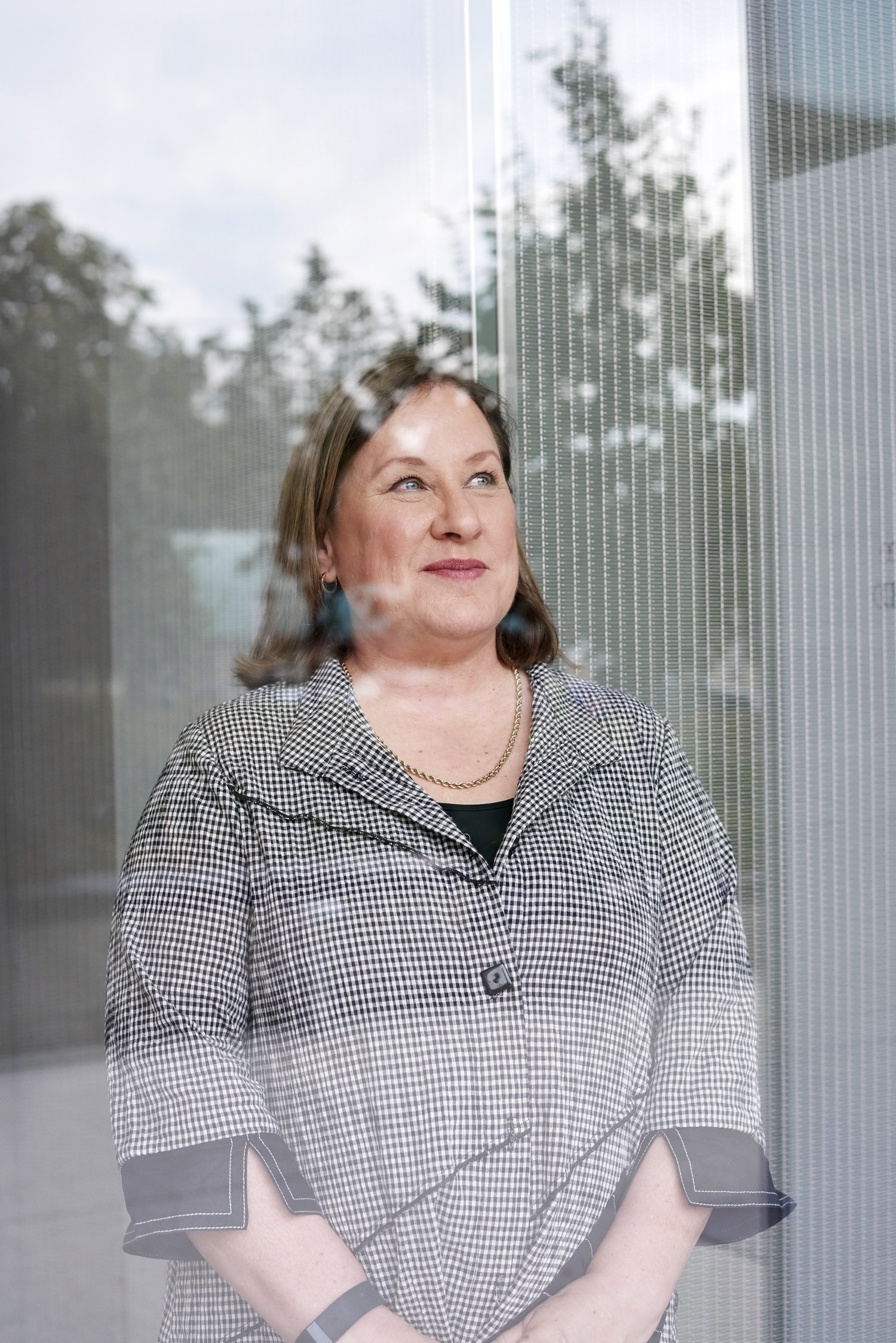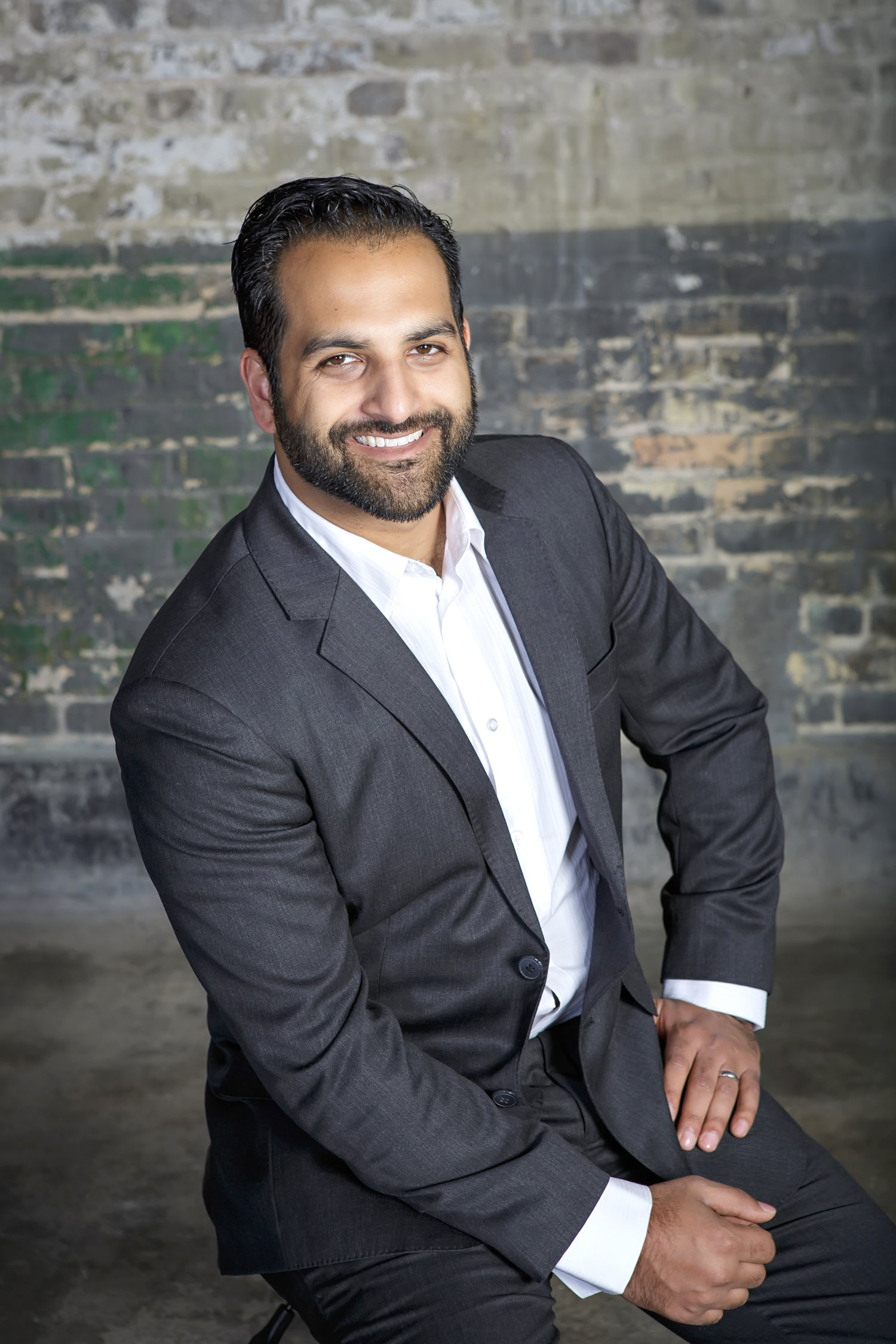The world is a mess right now. An outsider’s look into the current state of affairs would show a global community in shambles, suffering from a laundry list of maladies in need of a serious remedy. But no matter the circumstances, we can always believe that there are those who will refuse to sit idle and fight for change; pot-stirrers who aren’t afraid to shake things up for the better.
Canada has always been a land with a rich (albeit, unassuming) bounty of progressive thinkers. And now, more than ever, are we seeing these gamechangers rise to the top; talented men and women who dare to push boundaries and think outside of the box. In the spirit of progress, especially given today’s hostile climate, we rounded up ten Canadian changemakers who are disrupting industries, blazing trails and embody the spirit of innovation. From mindful visionaries to FinTech entrepreneurs, they’re an inspiring reminder to challenge the status quo in order to spur society forward.
Mike Serbinis
Founder and CEO, League
For decades, Canadian employers simply resigned themselves to being dissatisfied with their health benefits providers — lifeless companies shilling ever-shrinking portfolios coupled with ballooning costs. To say that Toronto-based serial entrepreneur and angel investor Mike Serbinis has flipped the archaic health insurance industry on its head is an understatement. The veteran of three start-ups — he founded DocSpace, Zip2 and Kobo, all of which sold for hundreds of millions — Serbinis is onto his fourth, and perhaps most disruptive, venture.
Serbinis’ digital health and wellness start-up, League, has shown aggressive growth since its launch, recently raising US$25 million in Series A financing from the likes of Royal Bank of Canada, Manulife Financial Corp. and Power Corp. More than 100 companies across Toronto, Vancouver and Seattle have already signed on to the agile start-up, and for good reason.
In contrast to outdated health benefits models, League aims to help employees “be better” instead of minimizing the services they use, doing away with a one-size-fits-all approach. Employers have the ability to pick and choose the local services they want — including yoga, personal training, nutrition advice and other wellness services not typically covered by traditional benefits — from a services marketplace. (Additional coverage can be purchased for things like serious illness, if needed.) In turn, employees can spend credit toward the services they want from a digital wallet through League’s app, freeing them from the confusing legalese and paperwork of yore.
The system’s cost-cutting efficiency makes it particularly attractive for small and medium-sized businesses hoping to attract talented millennial hires accustomed to an increasingly Uber-ized world. Larger companies also stand to gain from League, with workplace wellness programs gaining recognition as a vehicle for improving social, mental and physical well-being — all of which translate into faster, smarter employees and a better bottom line.
League is picking up steam, and Serbinis expects to expand it beyond its pilot cities by the end of 2016. When it does, the industry, and many of Canada’s workers, will be the better for it.
Alan Gertner
Founder and CEO, Tokyo Smoke


image courtesy of Tokyo Smoke
When Alan Gertner decided to rethink his life and quit his dream job, little did he know he would also help rethink the way Canadians see marijuana. Gertner was leading Google’s Asia-Pacific-wide sales team when he realized he felt unfulfilled by a career that had devolved into a cycle of corporate validation. In true Google fashion, he used a self-developed system he dubbed “TimeOn” to document, then quantify, his life and work experiences in order to find what made him happiest. In the end, he came up with three things that empirically made him feel complete: coffee, clothing and cannabis.
Armed with renewed focus, he flew back to his native Toronto and created Tokyo Smoke — a luxury brand rolling together all three of his passions — and opened a showroom by the same name featuring an espresso bar, branded men’s clothing and marijuana paraphernalia. Unlike the sorta-legal cannabis cafes and bandwagon dispensaries now dotting the city (though you can find Gertner’s proprietary, Washington-grown strains in some of those, too), Tokyo Smoke offers local creatives a beautifully designed, stigma-free space that aspires to a more modern and elevated take on cannabis.
And the timing couldn’t be better. With Prime Minister Justin Trudeau’s promise to take steps toward decriminalizing marijuana across the country, cannabis culture is ripe for the high-end transformation Gertner envisions. Gertner has plans to open similar coffee shops in Seattle and Los Angeles, and put his branded wares (whether wearable or smoked) on shelves of independent retailers in California, Oregon and Washington State.
Ariel Garten
Founder, InteraXon Inc.


image courtesy of InteraXon Inc.
The mind is a beautiful thing, and Ariel Garten is living proof of the fact. Every facet of the fascinating Toronto-born intellectual’s career — from avant garde fashion designer, to Art Gallery of Ontario-approved artist, to practicing psychotherapist — has explored the intersection of art and neuroscience, growing the fields by leaps and bounds with every brushstroke, note and innovation. Garten fused together her diverse interests in 2007 with her co-founding of InteraXon Inc., one of the world’s leading creators of brainwave-controlled products.
As the company’s chief executive, her vision has helped reshape how Canadians interact with technology. Canadians first got a taste of InterAxon innovation at the Vancouver 2012 Winter Olympics, where visitors were given telepathic control over the light displays decorating landmarks across the country, such as the CN Tower, Niagara Falls and the Canadian Parliament buildings.
Perhaps Garten’s most famous creation, however, is the Muse headband. Beautifully crafted, the brain-sensing instrument worn around the head is proven to help users safely meditate away stress, anxiety and depression. The Bluetooth-enabled band’s seven sensors record brain activity, as well as heartbeat, and store them in a companion smartphone app, giving constant feedback to help users calm their mind over each session and, over time, even train users to find their zen, no matter the situation.
At a time when the average Canadian worker experiences unprecedented stresses — the result of always-on work cultures and sky-high employer expectations — that little bit of zen can be all that stands between career success and an ugly burnout. Canadians are more mindful now than ever of the mental health challenges they face as the conversation hits headline after headline. But Garten is done talking and her innovations are changing minds about what is and can be possible when the human brain and design come together as one.
Ilse Treurnicht
CEO, MaRS Discovery District


Image courtesy of MaRS Discovery District
It can be argued that Canada wouldn’t be the burgeoning innovation and research powerhouse it is today without the leadership of Ilse Treurnicht, the entrepreneur turned investor turned CEO of Toronto’s MaRS Discovery District. Treurnicht took the helm of MaRS in 2005 following a successful stint as head of Primaxis Technology Ventures, an advanced technologies-focused venture capital fund. A Rhodes scholar graduate of Oxford University, her previous experience spanned senior management roles in the technology sector.
MaRS is best described as a petri dish for innovation, future entrepreneurs, venture capitalists, disruptors and more — a not-for-profit corporation with all the ingredients necessary to cultivate the next big Canadian start-up within the information technology, cleantech or health sectors. And it has done just that: according to the Globe and Mail, companies associated with MaRS have raised $2.6 billion in capital and earned $1.25 billion in revenue since its establishment in 2000.
The adjoining Toronto Medical Discovery Tower brims with state-of-the-art wet labs, and its financial technology wing is on the leading edge of artificial intelligence and analytics. Its expanding list of successful ventures include the likes of wearable tech company Nymi, accessible borrowing firm Lendful and investment planner Invisor. The facility is also the perfect landing pad for established heavyweights including Facebook Canada, Airbnb, LEAGUE, Moneris and Manulife. Technology giant IBM has also announced its intention to move into MaRS’ fintech hub.
MaRS remains an anomaly among incubators in that it is a public-private partnership, funded primarily by the Province of Ontario’s Liberal government. Owing to Treurnicht’s leadership, MaRS has become a testament to the idea that government support can pay off dividends —creating jobs and new opportunities at every turn. Treurnicht will step down as CEO of MaRS in June 2017, ending a 12 year legacy at the institution she helped build.
Ali Esmail
Co-Founder and CEO, PopRX


image courtesy of Ali Esmail
Dr. Ali Esmail has Canada’s prescription for simpler, more convenient access to pharmaceuticals. Accepted as a medical resident at the University of Manitoba’s prestigious Otolaryngogly/Head and Neck program, Esmail is also a postgraduate of the University of Waterloo’s entrepreneurship and technology program. An expert in innovation and software design in healthtech, Esmail would go on to found PopRX with Vejey Gandier and Raj Kailasanathan.
A self-proclaimed “Uber of prescriptions,” PopRX’s start-up offers same-day home delivery options for prescriptions as well as convenient tracking (users can take a photo of their prescriptions to create a personalized database). When a user requires a refill, they can simply swipe the well-designed app to set their order in motion — avoiding archaic paperwork and a trek to inconvenient locations — and the app automatically bills their credit card of insurance. Incredibly, all this is free for the customer.
What’s good for the customer is also good for business. Though PopRX is a relative newcomer to the digital health-care scene, it has already partnered with several Toronto-based independent pharmacies following a successful launch in British Columbia and Winnipeg. The app’s corporate infrastructure and millennial appeal helps keep the small operations that once made up the bulk of Canadian pharmacies stay competitive in a notoriously cutthroat industry.
With back-ups and waitlists now synonymous with Canada’s public health-care system, every bit of efficiency counts. Fortunately, Esmail and PopRX’s promise of accessible and convenient prescriptions delivers.
Jodi Glover
Co-founder and CEO, Real Tech Inc.


image courtesy of Real Tech Inc.
A self-described math and science geek (all despite being discouraged from pursuing science, technology, engineering and mathematics at the onset of her career), Jodi Glover has channeled her passions into innovation you can see, taste and sip — water.
Already an entrepreneur in the green energy sector by the end of her third year of university —she founded a solar heating company before returning to improve her business knowledge — her current company, Real Tech Inc., is making waves in the world of water. Glover founded it in 2004 with her father in Whitby, Ontario, to design and manufacture water quality analyzers that detect common impurities in real time, which could then be transported anywhere in the world. Since then, Real Tech has become a consecutive four-time recipient of the Deloitte Technology Green 15TM award and expanded to serve thousands of clients — from municipal wastewater treatment plants to beverage manufacturers — in more than 45 countries.
The technology has world-changing implications at a time when water is considered by many to be the next major resource of note, edging out oil in importance across all sectors. As massive companies snap up reserves for profit and the likes of agriculture and engineering work feverishly to purify and use less of it, access to clean water becomes more than just a necessity of human survival — it becomes the fuel for a healthy environment, a bustling economy and innovation.
With Glover committed to the development of simple water purity solutions, the future is very clear.
Lily Tse


Founder and CEO, Think Dirty
When’s the last time you gave thought to what you were putting in your body? For many of us, the question may conjure up the image of that extra waffle at brunch or that one Scotch too far. But Lily Tse, founder of Toronto-based start-up Think Dirty, wants to arm consumers with knowledge so they can make better, informed decisions.
The idea for her company and app came to her when, because of a family history of cancer, she started researching the carcinogens we willingly expose ourselves to, which are commonly found in seemingly innocent, everyday sources like lipgloss, shampoo and food. What she discovered went beyond the nasty stuff. She also saw a serious lack of transparency — just what does “all natural” or “organic” really mean for a consumer? — and even fewer resources for customers to draw on for accurate information.
The Think Dirty mobile app draws back the curtain on what we put on and into our bodies. Users can scan more than 300,000 personal care and cosmetic products at a store to find out their dirty secrets — harmful chemicals, possible allergens and toxic ingredients. Now an award-winning tool, Think Dirty is changing purchasing habits for the cleaner and healthier. It won’t be long before manufacturers follow suit.
James Sun
Co-founder and CEO, Revlo


image courtesy of James Sun
Depending on who you ask, life is a spectator sport — and if you’re James Sun, you know sport has taken on an entirely new meaning these days. Video game livestreaming and e-sports have become the world’s fastest growing spectator sports, with a market valued at nearly half a billion dollars. Amateur and professional streamers alike have made a success of the likes of Twitch, the world’s leading livestreaming platform that boasts more than 1.5 million broadcasters and 100 million unique visitors a month.
Seeing an opportunity to empower both streamers and their fans, Sun, a lifelong gamer and university dropout, launched Revlo in May 2016 along with five like-minded entrepreneurs. His fan engagement platform helps livestreamers boost, interact with and monetize their loyal fanbase.
Using Revlo, streamers can create a custom currency for their channel, which viewers can earn by completing certain types of engagement, from liking and subscribing content, to watching the channel for a certain period of time. Fans can then cash in to catch the attention of their favourite online stars, who in turn reward them with anything from shout-outs to head-to-head competitions. Other options include online contests and games. This virtual give and take creates even more of an incentive to watch, all the while supercharging the livestreaming community’s already rapid growth in popularity.
Though the platform is still in beta, major industry players are starting to take notice. ESL, a global e-sports competitions organizer founded in 2000, tapped Revlo to host its Extreme Masters Gaming Championships, and music label Monstercat uses it to host broadcasters in music — the latter reported doubled viewer time.
With more than 15,000 broadcasters and 5 million unique viewers to its name, Revlo is revolutionizing livestreaming — so when League of Legends and Counter Strike: Global Offensive replace the Superbowl as the sporting events of the year, you’ll have Sun to thank.
Heather Payne
CEO, HackerYou; Founder, Ladies Learning Code


image © 2016 Rogers Media Inc. All Rights Reserved
Learning to code is fast becoming the next oath to reading Ulysses in its entirety — it sounds like something we should do, but winding our way through the process often leaves us confused and ready to quit. Heather Payne had a similar experience when she moved to China and taught herself to code after graduating from the University of Western Ontario. While possible, she knew there had to be an easier way.
For one, learning with others made the process more enjoyable. Payne floated the idea of a Toronto-based coding workshop for women, and soon the immensely popular Ladies Learning Code was born. Following this success, Payne set her sights on an even more ambitious project: HackerYou. The co-ed program offers nine-week, boot-camp style courses that give beginners and somewhat more experienced coders hands-on instruction for building websites, games and more.
Both programs encourage women to enter a field that has been largely dominated by men. In 2011, the most recent year on record at Statistics Canada, women make up only 39 percent of all STEM (science, technology, engineering and math) graduates and 30 percent of those with a degree in math and computer sciences. The numbers haven’t significantly deviated for years. At the same time, Canada’s information technology sector is expected to balloon by 180,000 unfilled jobs in fields from web design to information analysis by 2019, according to Digicompass’ Labour Market Outlook 2015-2019 forecast, with 76,000 in Ontario, alone.
Thanks in part to Payne’s efforts, these numbers are shifting. Empowering more women to enter computer-based fields is disruption at its finest, helping reshape Canadian society on both its economic and social levels.
Alex Benjamin
Founder and CEO, Lendful
The slow, confusing and expensive process of getting a loan has become an inescapable matter of fact in the achingly slow lending industry. Alex Benjamin’s fast and easy fintech alternative, by contrast, has turned on the afterburners.
As the founder and CEO of Lendful, a Vancouver-based online lending platform, he is cutting out many of the aspects of borrowing that make it a headache—from inconvenient branch locations to slow response times—in order to save consumers cash and offer them some of the most competitive rates in the country. Users are offered alternative loans of up to $35,000 (often within 24 hours) provided they are of legal age and have an income and credit score score over 690.


Though some see alternative lending as a potential threat to conventional banking, many established players keen to modernize their offerings are embracing it. Lendful has caught the eye of Canadian credit union Alterna Bank, which recently invested $15 million in the app, allowing customers to refinance their credit cards and save on interest (and giving them peace of mind when dealing with a relative newcomer.)
Lendful has processed at least $20 million in loan applications since inception and helps Canadians ditch steep interest rates associated with credit cards and short-term loans. This is particularly important at a time when Canadians face record-high levels of consumer debt, with Statistics Canada reporting the average debt-to-income burden approaching nearly 170 percent. With disruptors like Benjamin spearheading the consumer fintech revolution, the future of banking will be anything but business as usual.








